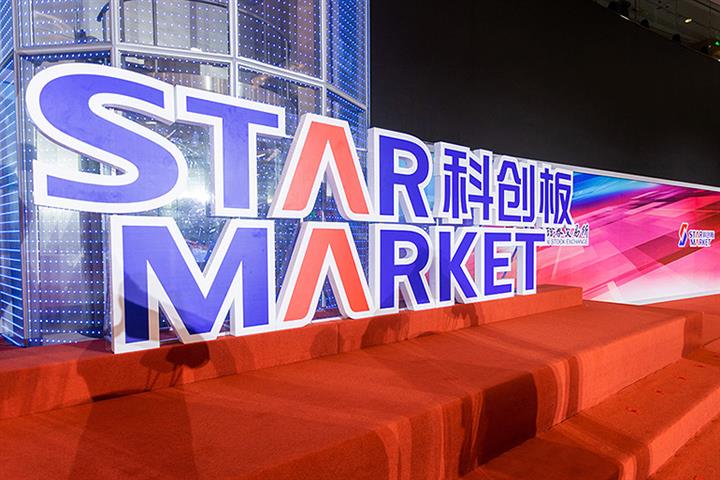 Shanghai’s Star Market Marks Third Year, Having Helped Startups Raise Over USD94.7 Billion
Shanghai’s Star Market Marks Third Year, Having Helped Startups Raise Over USD94.7 Billion(Yicai Global) July 22 -- The Star Market, the science and technology innovation board that launched in Shanghai three years ago today, has become a major source of financing for startups in China. Almost 440 firms have listed, raising more than CNY64 billion (USD94.7 billion) between them as of yesterday, according to Yicai Global calculations.
With their combined worth exceeding CNY5.5 trillion (USD814 billion), which accounts for about 6.6 percent of the value of all Chinese mainland-listed firms, the Star Market has become a major part of the nation’s capital market.
The board has made the listing requirements for startups easier. Some 38 unprofitable businesses and seven companies with special equity structures were listed on the Star Market as of June 30. Before 2018, neither the mainland nor Hong Kong markets accepted IPO applications from unprofitable biotech firms, so US exchanges were basically the only option for them.
The Star Market has given healthcare startups more chance of support from the capital market, according to Xue Mingyu, investment vice president at Matrix Partners China. It adds an important exit channel, allowing valuable but unprofitable firms to be seen by investors while helping venture capitalists make reasonable returns, he added.
Because of the Star Market, investment banks are getting involved in startups significantly earlier, accompanying companies on their growth journey, said Long Liang, executive head of investment banking at state-backed China International Capital.
The Star Market is driving more social resources into technology innovation, and the key elements include capital and talent, Long said. The wealth effect generated through listings can attract more high-tech talent to use technologies that support innovation, the investing expert added.
Companies listed on the board are investing heavily in research and development. Last year, they spent CNY85.2 billion (USD12.6 billion) on R&D, a 29 percent jump on the year before and the equivalent of 13 percent of revenues, according to data from the Shanghai Stock Exchange.
Star Market firms had more than 140,000 staff working in R&D as of Dec. 31, the SSE disclosed, an average of 330 per company, making up nearly 30 percent of their headcounts.
Editors: Dou Shicong, Emmi Laine, Xiao Yi